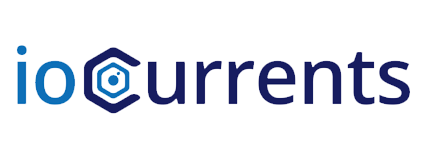Cosmo King, co-founder and CIO of ioCurrents said its position as a third party—independent of Original Equipment Manufacturers (OEMs)—means the company is able to offer unbiased vessel optimisation advice and feedback across a myriad different types of equipment from different vendors.
OEMs may offer digital solutions, “but it’s not for the operator owner. These solutions developed by the OEMs are 100% for the OEMs; they are not for the owners. The OEMs are using that data, they’re deciding what you get to see, and they’re really keeping that data for themselves to benefit from as a primary customer,” King stated.
Related: Getting to Zero Coalition outlines zero-emission policy package
ioCurrents predictive maintenance, fuel optimisation and long-term maintenance services flip that arrangement, said King. “What we build, the data that we give you from the equipment that you own, is for you. We’re helping you get the optimum use of your fleet from it.”
“It’s not to say [owners] can’t get parts of that information from the OEM, but they don’t want to look at outputs of raw numbers from vendor A and then a graph or two from vendor B, and then have to log into a system from vendor C where they’re not allowed to download anything,” King explained.
Related: Podcast: In Conversation – Jacob Iversen Snoer, Wärtsilä
Beyond consolidating data from various pieces of equipment and systems, King said customers value transparency and the clear presentation of data in a way that is simple to understand. One recent area of focus for the company has been developing the range and clarity of the reports it offers.
“There are some common ones that everyone needs like a fuel an emission report, a voyage summary report, daily maintenance report… reports across our different feature areas that we automate, rather than having people make them by paper,” said King.
Different vessels types and fleets want to see data in many different ways, and so custom report templates requested by one customer are developed and then made available across the platform to allow all customers the same insights for their own fleets.
“Everyone’s data is kept private, but we want companies to learn from the best practices of others. We can only know so much, we’re really learning from every new customer and we want to share it, we want that information to be able to be to benefit all as much as possible,” said King.
The rapid adoption of digital technologies during the pandemic had accelerated digitalisation of the maritime market, said King, but also increased the value of its maintenance-related services as unplanned maintenance became more costly. Increased costs and complexity around travel for technicians has the potential to extend delays to ships, and choked up logistics chains have the potential to delay parts deliveries.
“Until the pandemic, people thought, this is probably something that will happen in five or 10 or 20 years. And now it’s like, you can’t live without it,” said King.
Seattle-based ioCurrents has recently opened a London office and is hoping to expand its reach in the European market.

